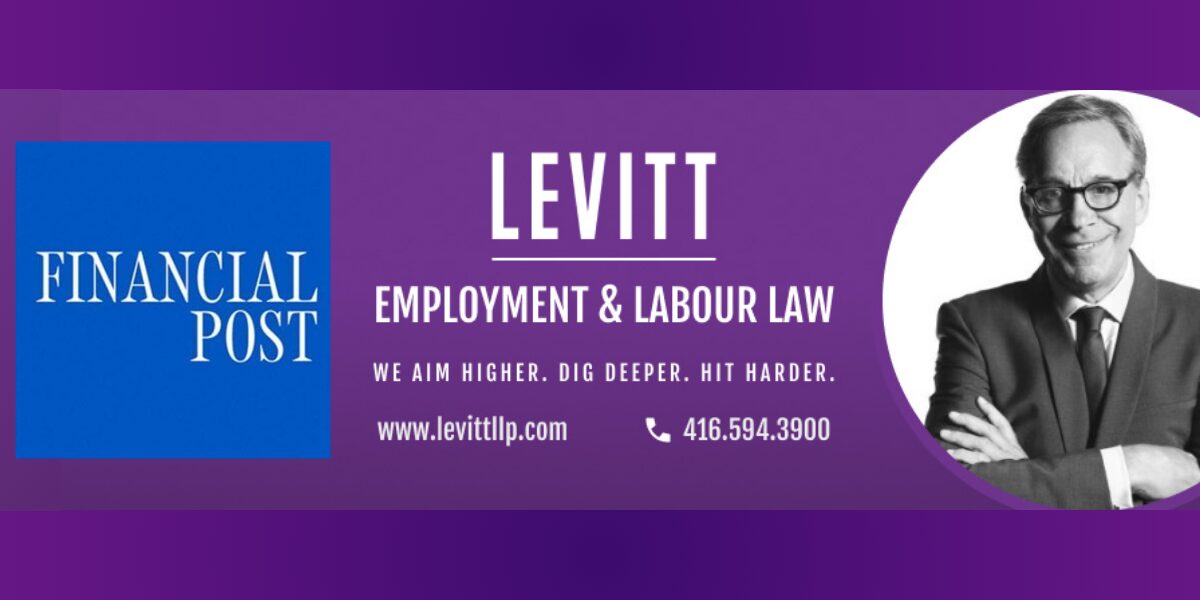By Howard Levitt and Gregory Sills
The Internet is always mere minutes away from derailing a career, irrespective of whether the target of the attacks deserves it
Unfortunately, an entirely different Sean Higgins, also of Woodstown, New Jersey, suffered collateral damage thanks to so-called Internet sleuths, who quickly found and disseminated his address, while Sean M. Higgins was already in police custody. The innocent Sean Higgins was at a concert with his daughters when word got out and was later subjected to unfettered abuse and harassment.
Admittedly, this is a unique set of circumstances and would not likely have happened had the Gaudreau brothers not been beloved public figures. Nonetheless, it demonstrates the ease with which one’s reputation can be tarnished in our perpetually connected world. Indeed, the Internet is always mere minutes away from derailing a career, irrespective of whether the target of the attacks deserves it.
Thus, it is perhaps only fitting that this online vilification of an innocent man came on the same weekend that Brazilian lawmakers banned Elon Musk’s $44-billion social media platform, X (formerly known as Twitter), claiming it to be a tool for the rampant dissemination of misinformation and hate speech.
While Brazil’s move will undoubtedly be criticized as a threat to free speech, I suspect that, individuals who have experienced anything close to what Sean Higgins did will see merit in reining in social media. Such sentiment is amplified when you consider the frequency with which employers are anchoring personnel decisions on the basis of public discourse in the social media space.
As I have previously opined in my criticisms of workplace investigations, employers routinely take a flawed, self-serving approach investigating allegations against staff. Too often, they rely on selective evidence to achieve their desired outcome, broader facts be damned.
The foregoing does not mean that an employer in possession of verifiable evidence of employee misconduct gleaned from online sources should not act in response.
Take, for example, the Hamas hate rallies that have occurred nationwide over the past year. I have consistently maintained that if you can positively identify (either by photo/video evidence or by their own admission) a public facing, client facing or managerial employee participating in this type of misconduct, it is grounds for termination with cause, as there is no obligation for an employer to tolerate hate speech or related conduct.
Last fall, Air Canada rightly took swift action when one of its pilots was photographed in his uniform at an anti-Israel demonstration. The pilot was captured holding a sign referencing Hitler and disseminating hate speech. Simply put, there is no place in today’s world for such misconduct, and companies are properly empowered to assess the viability of employment in such circumstances.
The takeaway is clear: employers must remain vigilant and ensure that sources are sound and verifiable prior to acting on evidence from third parties, especially if it was discovered online.
This may sound simple, but given the recent emergence of AI image and video generators it is becoming increasingly difficult to distinguish fact from fiction. The omnipresence of social media further complicates the problem, as these platforms amplify the velocity with which content is disseminated.
Although employers bear the burden of establishing grounds for just cause, individuals should assume that someone is filming their actions and govern themselves accordingly. If you are embarking on a course of action that you believe could cost you your employment, stop and ask yourself, ‘is it worth it?’
As long as society continues to rely on the findings of wannabe Internet detectives on Facebook, X, Reddit and the like, we all run the risk of becoming collateral damage like poor Sean Higgins.
In the meantime, I will continue to encourage my employer clients to take the carpenter’s approach to acting on third party information — measure twice and cut once. It is the least they can do to avoid making costly decisions based on increasingly questionable evidence.

